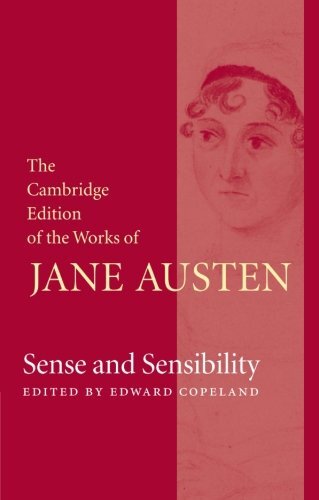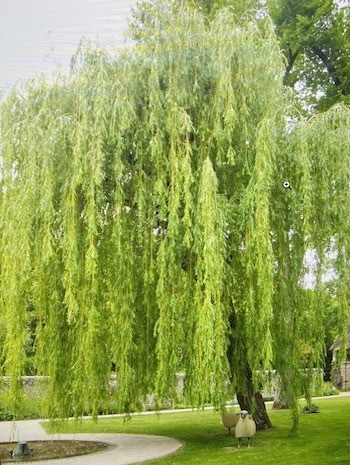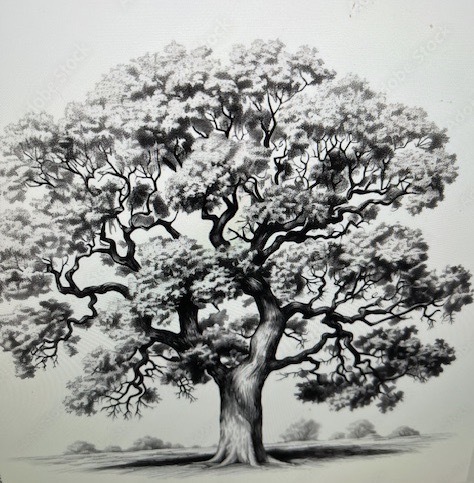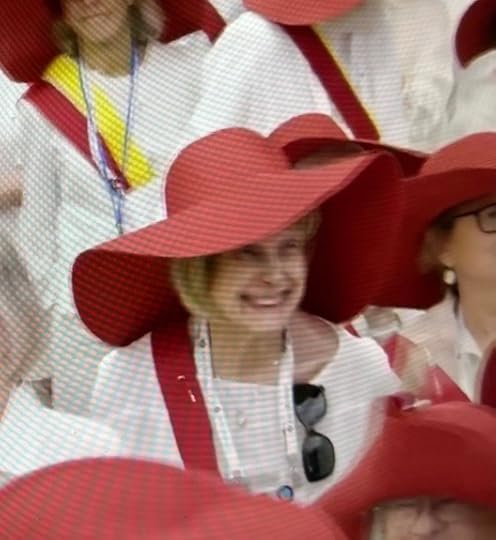Time to Deliberate and Judge Edward Ferrars, by Deborah Knuth Klenck
I have long thought that Edward Ferrars doesn’t get enough credit: he is adjudged by many students, critics, readers, and Jane Austen fans (in various groups on Facebook, for example) to be a rather flat character—even boring. Over thirty years ago, when Patricia Meyer Spacks was working on her book Boredom (1995), she visited my campus and met with a small group of faculty from area universities to discuss Sense and Sensibility. The consensus seemed to be that Edward was not only “boring,” but “depressed.” At the time (when I was outranked by everyone in the room), I was reluctant to wade into that controversy as a lone voice. The discussion, before consensus was reached, reminded me of the arguments students in my Jane Austen seminar had each year about whether the spirited, but wicked Henry Crawford could be redeemed at the end of Mansfield Park to become an appropriate suitor for Fanny Price. (Sometimes these debates verged on bloodshed.) I’m sure that my present audience will listen more politely.
[Of all of Austen’s works, Sense and Sensibility must have been of particular importance to Professor Spacks (who had been on my dissertation committee at Yale—another reason I didn’t speak up). Years after Boredom and our talk in Central New York, when the Belknap Press at Harvard was planning an elaborate collection of “Annotated Editions” of the novels, Spacks chose Sense and Sensibility for herself. It’s a handsome and comprehensive volume, with copious illustrations and detailed annotations. In Professor Spacks’s introductory essay, she makes clear that her opinion has not changed. Edward, she writes, is ”idle and depressed” (2013).]

(From Sarah: This is the thirteenth guest post in “A Summer Party for Sense and Sensibility,” which began on June 20th and will continue through to the end of the summer. You can find all the contributions to the blog series here . I hope you’ll join the conversations about S&S in the comments here and on social media: #senseandsensibilitysummer. Thanks for celebrating Jane Austen’s first published novel with us!)
Of course, even Edward belittles himself in hyperbolical terms as “an idle, helpless being” (Volume 1, Chapter 19). And I’ll concede that when he arrives at Norland in Volume 1, Chapter 3, his description’s underwhelming terms hardly seem to bode well:
Edward Ferrars was not recommended to [the Dashwoods’] good opinion by any peculiar graces of person or address. He was not handsome, and his manners required intimacy to make them pleasing.

These negatives go on, through “too diffident” and “neither nor” phrasing, about his family’s expectations for his future. The narrator may not give a flattering picture of Edward at this moment, but he seems more appealing when he is described as resisting the Ferrars family’s plans for him. Their vague (but always pretentious) expectations are “to see him distinguished—as—they hardly knew what,” listing such unlikely callings as entering parliament or at least becoming somehow “connected with some of the great men of the day.” The judgmental tone of this summary of the plans Edward’s sister Mrs. John Dashwood and his mother, the redoubtable, rich, and powerful Mrs. Ferrars, have for Edward should send the reader back to his introduction at Norland, so she can reconsider all those “nots” (including “not promising”) that describe him. Judging Edward has already become complicated, and Mrs. Dashwood’s initial appreciation of Edward as “quiet and unobtrusive” suddenly seems more significant (Volume 1, Chapter 3). In Volume 1, Chapter 17, Elinor warns against taking up “’a total misapprehension of [someone’s] character . . . fancying people so much more gay or grave, or ingenious or stupid than they really are,’” a danger that may be avoided by “’giving oneself time to deliberate and judge,’” advice that would be good for the reader as well as for impulsive Marianne and her sentimental mother.

[A little digression here: the independence of the widowed Mrs. Ferrars in controlling the family fortune means that she and her daughter, according to the narrator, can always transfer their ambitions (those ambitions for “they hardly knew what”) from Edward to his “more promising” younger brother Robert. By now, we know how to recast the ironic hints about the qualities that mark a man as “promising”; it makes us look forward to Robert’s appearance in the novel, to see how Austen illustrates his “promise”: then we can fully appreciate his qualifications for promotion to the role of eldest son and heir. The narrator certainly makes the most of the little scene where Robert keeps Elinor waiting at Gray’s, the London jewelers. If a career in tooth-pick-case design is one of the Ferrars family’s hopes for him, Robert is the ideal candidate, adept as he is at identifying “all the different horrors of the [ready-made] tooth-pick cases presented to his inspection” at Gray’s. (I suspect that none of the three pictured here would satisfy his exacting standards.)

Austen’s sarcasm is devastating: once Robert has chosen the ivory, gold, and pearls that will adorn his bespoke tooth-pick case, the narrator tells us, he “named the last day on which his existence could be continued without the possession of the toothpick-case,” before leaving the shop (Volume 2, Chapter 11): a “more promising” brother for Edward indeed!]
Marianne uses characteristic hyperbole to describe Edward as a “‘spiritless’” and “‘tame’” reader of poetry, “‘who [has] no taste for drawing’”; and whose eyes lack “‘that spirit, that fire, which at once announce virtue and intelligence.’” But we need to keep in mind the humble Edward of the “nots” and aim for a subtler judgment about him, closer to Elinor’s carefully qualified adverbs: “‘At first sight, his address is certainly not striking; and his person can hardly be called handsome’” (Volume 1, Chapters 3 and 4).
When he arrives at Barton Cottage, coming straight from a visit to Lucy Steele at Longstaple, Edward is obviously “not in spirits”; Elinor is mortified by his “coldness and reserve,” which are only much later to be explained by Edward’s unhappiness in his secret engagement to Lucy (Volume 1, Chapter 17). But the warmth of Mrs. Dashwood’s motherly conversation thaws Edward out, and after dinner, collected around the fire, the family has a cozy conversation, albeit about money. And here we see Edward in a meaningful relationship—not with Elinor, but with Marianne. Edward can be surprisingly sprightly with Marianne, engaging in several gentle satirical attacks on her tastes. For example, considering how the Dashwoods would spend a hypothetical surprise inheritance (a “‘large fortune apiece,’” enthuses Margaret), he predicts how the family would spend their money—on music, prints, “‘[a]nd books!—Thomson, Cowper, Scott—[Marianne would buy these poets’ works] over and over again; . . . and she would have every book that tells her how to admire an old twisted tree.’”

In mock apology to Marianne, he pleads, “’Forgive me, if I am very saucy. But I was willing to shew you that I had not forgot our old disputes.’” (Marianne, all of sixteen years old, replies, “‘I love to be reminded of the past, Edward,’” adding, to the reader’s amusement, “‘At my time of life opinions are tolerably fixed.’”) Edward’s recollection of their “‘old disputes’” makes clear that his relationship to Elinor’s sister during his visit at Norland was quite friendly, with a familiar rhythm of teasing jokes. When he and Elinor discuss Marianne’s temperament, Edward insists, “‘I have always set her down as a lively girl’” (Volume 1, Chapter 17).
An aspect of the conversation about money is a debate about how much annual income constitutes a “competence” and how much more constitutes “wealth.” Marianne insists that two-thousand-a year “‘is a very moderate income. . . . A family cannot be maintained on a smaller. . . . A proper establishment of servants, a carriage, perhaps two, and hunters, cannot be supported on less.’” Edward protests that “‘[e]very body does not hunt’” (Volume 1, Chapter 17). Even when momentarily disconcerted by questions about his ring with (presumably) Elinor’s hair, Edward can promptly return to the role of the affectionate, joking brother. When the hospitable Sir John brings up the name of the absent Willoughby and Edward sees Marianne’s blush, he whispers to her, “‘I have been guessing. Shall I tell you my guess? . . . I guess that Mr. Willoughby hunts’” (Volume 1, Chapter 18).
Like Elinor, Marianne, and the narrator, Edward speaks of himself using a fair percentage of “no”s and “nothings.” A conversation about the landscape around Barton shows him bookending his admiration of the countryside with a repeated disclaimer (something Catherine Morland could have said). “‘I have no knowledge in the picturesque,’” he begins, and concludes his speech, “‘I know nothing of the picturesque.’” His speech, too long to analyze here, is filled with pleasing parallelisms worthy of Samuel Johnson (“‘I shall call hills steep, which ought to be bold,’” and so on). He continues, “‘I do not like crooked, twisted, blasted trees. I admire them much more if they are tall, straight and flourishing,’” a second reference to twisted trees (Volume 1, Chapter 18).
Edward’s playfulness with Marianne at Barton, recollecting happy times at Norland, could have given Emma Thompson inspiration for her screenplay’s scenes of Edward playing pirates and other games with Margaret in the film version of Sense and Sensibility (1995).
But the more I have contemplated these passages over years of reading the book, trees begin to feel symbolic. Willoughby’s name may remind us how willow branches sway.

(And a ”will-o’-the-wisp” is an flickering mirage that frightens night travelers in the countryside.) Neither Edward nor Colonel Brandon need bear the surname “Oak” for us to doubt the reliability of Marianne’s apparent suitor, who moves as the wind—or the heiress—blows. A virtue of Edward Ferrars is his steadfastness, but he can also be a thoughtful and amusing companion.

Quotations are from the Cambridge Edition of the Works of Jane Austen, Sense and Sensibility, edited by Edward Copeland (2005).
Deborah Knuth Klenck recently retired as Professor of English at Colgate University, after 42 years of teaching courses in the British poetry, drama, and fiction of the “long eighteenth century.” Her courses ranged from Milton’s Paradise Lost; Restoration poetry and drama; political satire from John Dryden, Jonathan Swift, Alexander Pope and John Gay; to the fiction of Frances Burney, Maria Edgeworth, Charles Dickens, Barbara Pym, and Margaret Drabble. Her first JASNA AGM presentation was in 1987 and she has continued to speak at JASNA events, international and regional, ever since, and has been a judge of graduate-student entries in the annual JASNA essay prize. Her articles and book chapters concern the works of Pope, Swift, Daniel Defoe, and Samuel Johnson, but Jane Austen is her predominant subject. She has also been an enthusiastic, long-term participant in the Jane Austen Summer Program at the University of North Carolina at Chapel Hill. She says that “Austen readers are the best readers—and writers and audiences!”

At the 50th Reunion parade at Smith College a few weeks ago. Deborah says, “Red is the class of ‘74’s color so the powers-that-be ordered up these sombreros. I craftily ‘forgot’ mine on the way home.” She also sent me the photos of her wisteria, rhododendron, and clematis that appear above, along with a picture of her visiting Jane Austen’s grave in Winchester Cathedral in 1992, with her children, Edward and Jane:

If you enjoyed this post, I hope you’ll consider recommending it to a friend. If you aren’t yet a subscriber, please sign up to receive future guest posts in “A Summer Party for Sense and Sensibility.” The next post, “Mrs. Dashwood’s Journey of Growth in Sense and Sensibility,” is by Vic Sanborn.
Here are the links to the last two posts, in case you missed them:
In the Matter of Sense v. Sensibility: An Excerpt from the Upcoming Novel Austen at Sea , by Natalie Jenner
Prodigal Sons in Sense and Sensibility , by Joyce Kerr Tarpley

Read more about my books, including Jane Austen’s Philosophy of the Virtues and Jane Austen and the North Atlantic, here.



